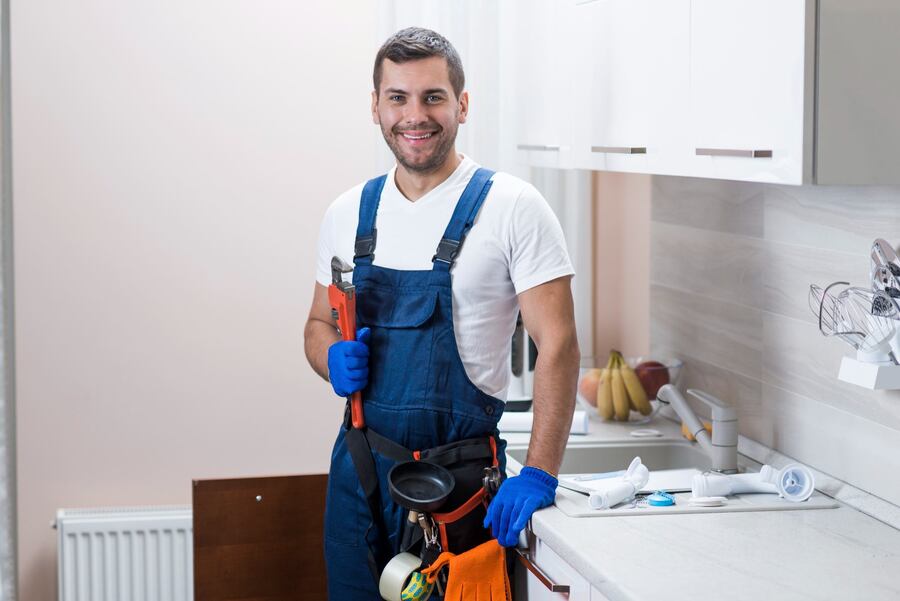Call This Monday to Get $50 OFF
Call us today
214-943-2424

When moving into a new home, ensuring the plumbing system is in excellent condition is crucial for long-term comfort and functionality. Plumbing issues can be costly and inconvenient, so a thorough inspection and proper setup from the outset can save you significant trouble down the road. Here’s a comprehensive new home plumbing checklist to help you identify potential problems and ensure everything is in working order.
Start by inspecting all visible pipes and fittings for signs of leaks, corrosion, or damage. Look under sinks, behind toilets, and around your water heater. Any discoloration, rust, or moisture can indicate a potential problem. If you notice any issues, contact a professional plumber from Texas Rooter for a detailed assessment and necessary repairs.
Proper water pressure is essential for the efficient operation of your plumbing system. Low water pressure can indicate clogged pipes or issues with the main water supply, while excessively high pressure can damage fixtures and appliances. Use a water pressure gauge to check the pressure, which should ideally be between 40-60 psi. If it’s outside this range, a plumbing service like Texas Rooter can help adjust the pressure or address underlying issues.
Go through the house and test all the faucets and fixtures, including showers, bathtubs, and outdoor spigots. Check for proper water flow, leaks, and any unusual noises. Dripping faucets and leaking fixtures can waste water and increase your utility bills. If you encounter any problems, our plumbing repair services can fix or replace the faulty fixtures.
The water heater is a critical component of your home’s plumbing system. Check the heater for any signs of rust, leaks, or corrosion. Ensure the temperature is set between 120-140 degrees Fahrenheit to prevent scalding and reduce energy consumption. If your water heater is over 10-15 years old, consider having a qualified plumber inspect it to determine if it needs replacement or maintenance.
Slow or clogged drains can be an early sign of more significant plumbing issues. Test all drains in sinks, tubs, and showers to ensure they empty quickly and efficiently. Additionally, inspect the sewer line for any signs of blockage or damage. A professional plumbing service like Texas Rooter can perform a thorough cleaning or use a camera inspection to identify and resolve any sewer line issues.
Proper venting is essential for the safe and efficient operation of your plumbing system. Inspect the vent pipes on your roof to ensure they are clear of debris and obstructions. Blocked vents can lead to slow drains, sewer gas odors, and pressure imbalances. If you’re unsure about the condition of your venting system, a plumber can provide a detailed inspection and any necessary repairs.
Don’t forget to check outdoor plumbing elements, such as hose bibs, irrigation systems, and drainage. Ensure hose bibs are not leaking and that irrigation systems are functioning correctly without any visible leaks. Proper drainage around your home’s foundation is crucial to prevent water damage and foundation issues. If you notice any problems, our experts can help address them promptly.
Locate your home’s main water shut-off valve and ensure it’s easily accessible and functions correctly. In case of a plumbing emergency, knowing how to quickly shut off the water supply can prevent significant water damage. Also, check the water meter for any signs of leaks. If the meter continues to move when all the water is turned off, you might have a hidden leak that requires a professional plumber to locate and repair.
A thorough plumbing inspection and proper maintenance are essential when moving into a new home. By following this checklist, you can identify potential issues early and ensure your plumbing system operates efficiently. For any concerns or repairs, checking out our plumbing services in your area will provide peace of mind and long-term reliability. Don’t wait for a problem to arise; proactive measures can save you time, money, and stress in the future.
We all know that extremely cold weather can lead to frozen and burst pipes.…
Read MoreHave you ever walked into your basement after a heavy rain and found water everywhere?…
Read MoreHave you ever been startled by a strange noise coming from your water heater? Those…
Read MoreWater isn't always as pure as it seems. Contaminants—from harmless minerals to potentially harmful chemicals—can…
Read MoreImagine you’re hosting a backyard barbecue in sunny Texas when you…
Read More